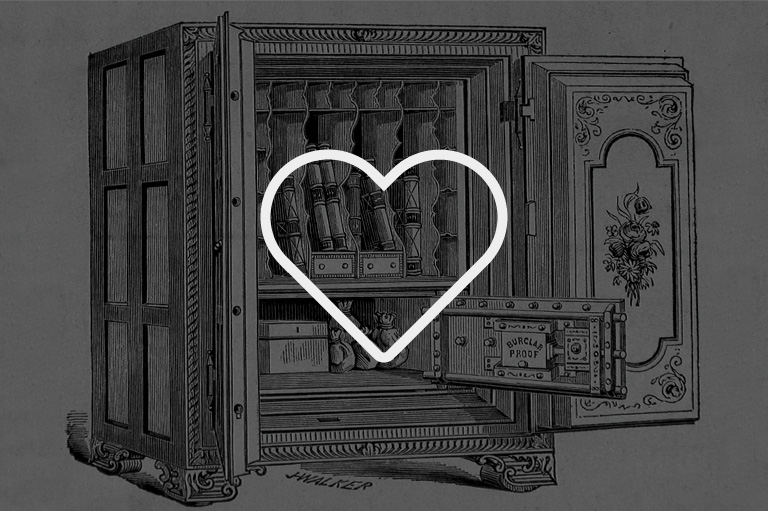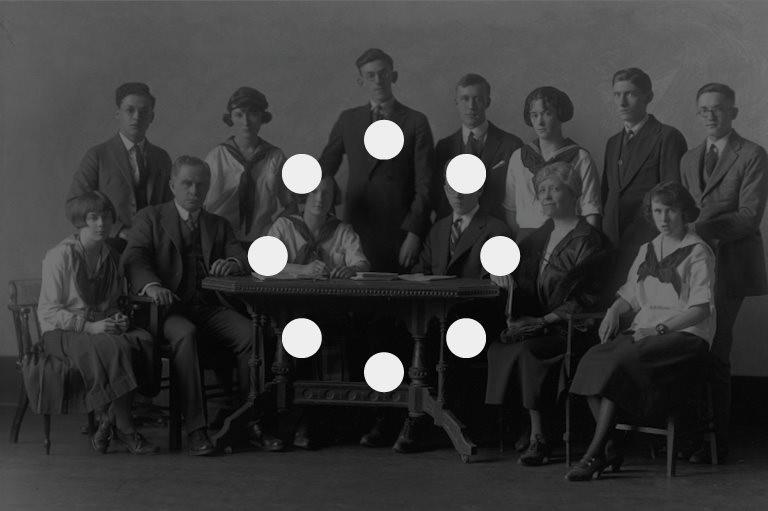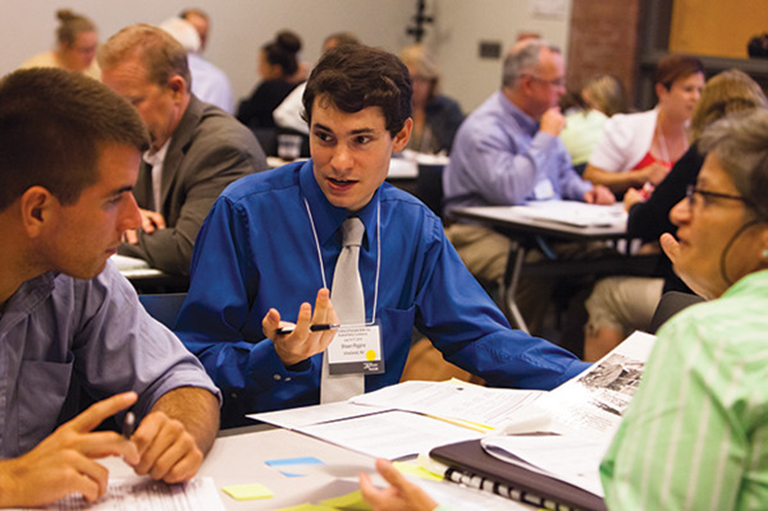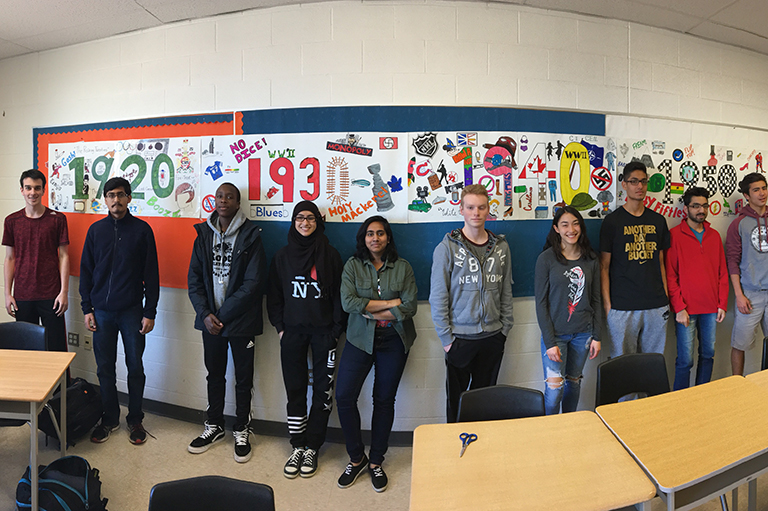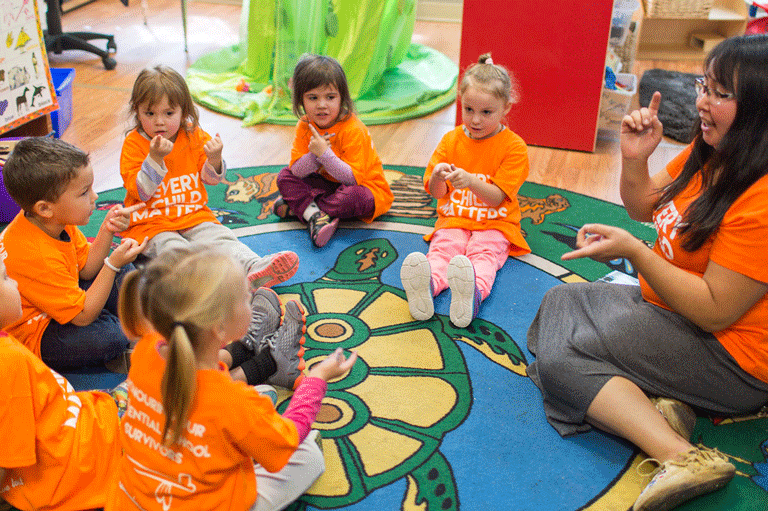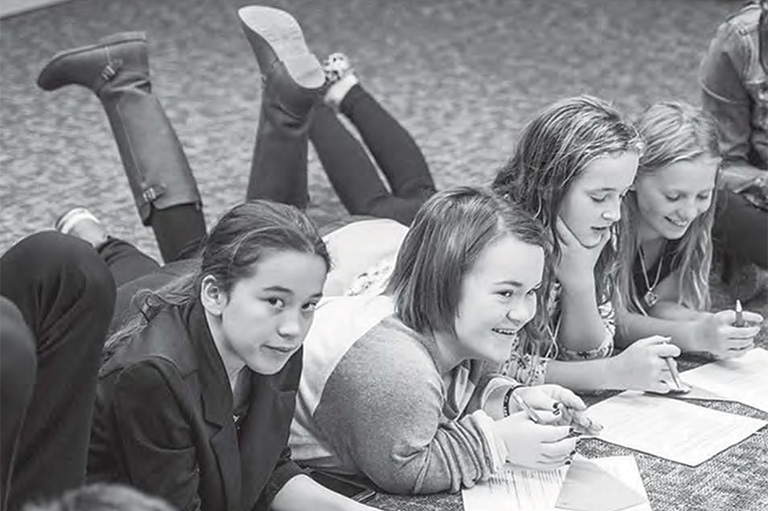History Education is Indispensible
“History educators play a huge role in developing citizens who are civically competent – knowledgeable and skilled – and engaged.” — Mark Perry, 2021 recipient, Governor General’s History Award for Excellence in Teaching
People build connections with each other when they have opportunities to explore how they fit into the stories of this nation. The study and learning of history is a powerful antidote in an age of disinformation. Understanding our past is part of a healthy democracy.
Earlier this year, the Society wrote to education ministers in the thirteen provincial and territorial governments, encouraging them to put more resources toward learning history and offering them our collaboration. You can see our full letter below.
Thanks to supporters in government, the private sector, foundations, and partner organizations, Canada’s History engages three million people annually with our inclusive programs. Our English and French newsletters provide support to more than 20,000 educators. Content on our website attracts one million unique visitors annually. By administering the Governor General’s History Awards, we recognize outstanding history educators and community leaders every year.
We share, support, and celebrate history. With greater resources, we could be reaching more.
“My students were able to learn from the untold stories of Canadians who showed that, together, we can achieve extraordinary things.” — Chantal Clabrough, 2023 recipient, Governor General’s History Award for Excellence in Teaching
Letter to the Ministers of Education
At Canada’s National History Society, we’ve always believed in the importance of knowing our past. Our goal is to highlight our nation’s history by telling stories that illuminate the people, places, and events that unite us as Canadians, while understanding that diverse experiences and multiple perceptions are to be expected. A deep and complex understanding of our past connects to the health of democracy by helping individuals and groups understand our society’s evolution, successes, struggles and continuing challenges, and imagining possible futures. In contrast, an inadequate knowledge of the breadth and depth of Canadian history poses a serious challenge to understanding what makes this country unique and successful.
Why are we writing to you now?
The current political, social, technological, and cultural complexities we are facing as a society demand a solid grounding in the past. History education is more indispensable than ever. If Canada is to protect, maintain, and grow its status as a healthy democracy, it requires a well-educated, engaged citizenry with the capacity to study our past. The capacity to “think historically” helps citizens make connections between the past and the present and is transferable knowledge that is crucial in these complex times.
Although the above concerns may be seen by some as challenges to overcome, at Canada’s History we see these as opportunities that we are poised and ready to address. We recognize that some parts of our history can make people proud — for example, the development of the Charter of Rights and Freedoms, or our economic, scientific, and military accomplishments. But we also recognize that other parts, such as the experiences of Indigenous peoples and other marginalized groups whose voices have often been suppressed, require deep understanding so that we can work together to resolve issues facing Canada today.
The need for a more inclusive approach to history has become apparent in recent years to scholars, public officials, teachers, students, community leaders, and citizens. Our young people are asking for it; the Truth and Reconciliation Commission recommended it. Canada’s National History Society agrees, and we are working to nurture an interest in and passion for learning about Canada’s diverse stories. At the 2022 Governor General’s History Awards ceremony, Her Excellency the Right Honourable Mary Simon called for “telling a fuller history.” There is complexity in the story of Canada, but we believe that we can build connections when people have opportunities to explore how they fit into the stories of this nation.
The impact of powerful technologies that accelerate the potential for disinformation is another opportunity to showcase the importance of learning history. In an age of disinformation, the study and learning of history can be an antidote. Reflecting on history helps all citizens — young and old alike — to develop critical thinking skills — reasoning, assessment, judgment. These skills will foster empathy and a greater understanding of each other’s stories, contribute to a sense of identity and belonging, and empower us to be engaged members of our communities.
In our educational institutions, teachers are being called upon to deliver complicated content and facilitate difficult conversations, often with limited support and resources. Moreover, in many parts of Canada, teachers are seeing unprecedented diversity within their classrooms. Their job is to make history relevant and help all of their students see themselves in our nation’s stories. Today’s classrooms are also diverse in terms of students’ learning abilities. Teachers are seeking resources that will help them reach all students, meaning materials at different reading levels and in different formats.
Beyond the classroom, history can be shared and learned in many places, such as museums, parks, galleries, community events, festivals and more. All these establishments and events require public and private support. As an example of how Canada’s History supports the promotion of history in a community context, we invite you to explore one of our projects: The John Bragg Award for Atlantic Canada.
Who are we?
Canada’s National History Society (CNHS), headquartered in Winnipeg, is an advocate for learning history and all those who support this objective.
The organization began sharing stories in 1994 when it took responsibility for HBC’s magazine The Beaver, now known as Canada’s History. The print edition of Canada’s History alone reaches more than one million readers. With digital platforms, community history fairs, a children’s magazine, and the Governor General’s History Awards, we are dedicated to building a passion for history, whether that learning takes place in a school classroom or in our own backyard. Almost 3,000,000 Canadians engage with our programs each year — but we know we could be reaching more!
How can you support Canada’s History?
We are grateful to all those public and private supporters connected to Canada’s History who nurture an intelligent interest in history. We know that you appreciate how knowledge of the past is critical to building a strong and healthy future for our country.
We are writing to encourage your further support in promoting knowledge of our nation’s histories. We have content and programs, in both French and English, ready to assist teachers, students, and anyone interested in learning more about Canada’s histories — but we could be doing more with more financial support.
As well, we welcome collaboration. This could include discussions with you on how we might partner to share and/or develop resources to support your educational goals. We also welcome conversations about how we might support your efforts to promote learning history in both formal and informal contexts. For example, many of our teacher and student resources are directly linked to provincial and territorial curriculum outcomes for history and social studies.
We thank you, and we stand ready to talk with you about how you would like to support our efforts to share and promote learning about Canada’s past. The future depends on it!
Themes associated with this article
Advertisement
In today’s environment of misinformation and disinformation, it can be hard to know who to believe. At Canada’s History, we tell the true stories of Canada’s diverse past, sharing voices that may have been excluded previously. We hope you will help us continue to share fascinating stories about Canada’s past, highlighting our nation’s diverse past by telling stories that illuminate the people, places, and events that unite us as Canadians, and by making those stories accessible to everyone through our free online content.
Canada’s History is a registered charity that depends on contributions from readers like you to share inspiring and informative stories with students and citizens of all ages – award-winning stories written by Canada’s top historians, authors, journalists, and history enthusiasts. Any amount helps, or better yet, start a monthly donation today. Your support makes all the difference. Thank you!

